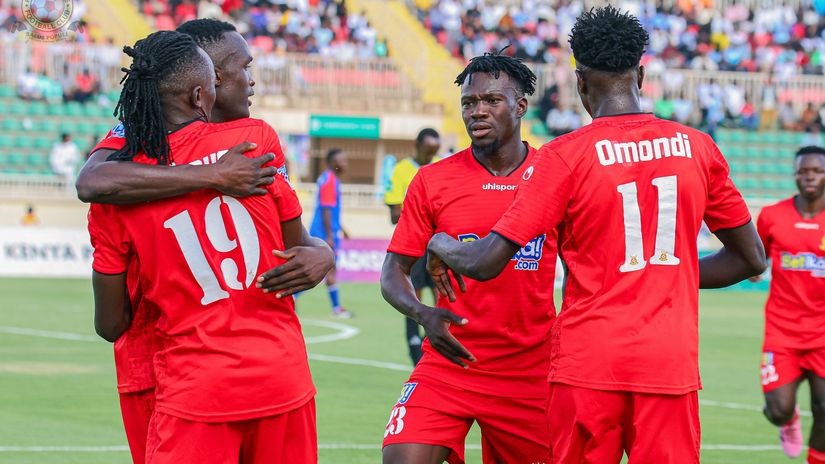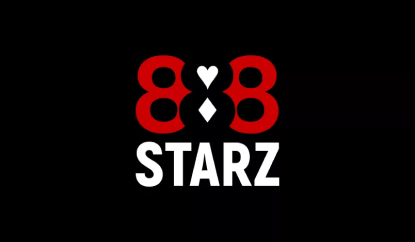In a tie that had everything, from tactical tension to a fraught off-field backdrop, CAF Champions League Kenya Police vs Mogadishu City became a test of nerve as much as skill. Kenya Police FC staggered to the finish line at Nyayo National Stadium, losing 2-0 on the night yet squeezing through to the second preliminary round on the away goals rule after a 3-1 first-leg cushion. It was survival, it was imperfect, and it was unforgettable.
A debut on the continental stage and a warning against complacency
Kenya Police have climbed fast, winning their first FKF Premier League title and earning a maiden ticket to Africa’s elite competition after years of steady building. Their head coach, Etienne Ndayiragije, sounded the early alarm in the build-up, insisting that the job was not done despite the healthy first-leg lead. The message was simple, respect the opponent, respect the moment.
| CASINO | BONUS | INFO | RATING | |
|---|---|---|---|---|
|
bonus
Deposit KES 147 for up to KES 14,745 bonus + spins!
See 10 Bonuses
|
info
BK 0000683 Industry-leading software providers, over 30 casino games, BCLB license |
|||
|
bonus
Register for up to 31,400 KSH bonus on deposits!
See 12 Bonuses
|
info
No. ALSI-112310012-F15 Unique selection of slots & games |
|||
|
bonus
New players get 50 free spins and a Ksh 2500 freebet!
See 7 Bonuses
|
info
BK 0000665 PG 0000405 Good combination of online casino and betting platform |
His pre-match tone drew on scouting, preparation, and lessons learned. As he put it, viewing Mogadishu City during the CECAFA Kagame Cup gave crucial clarity on their strengths. He was adamant that reputation could mislead, and that assuming an easy ride would be a mistake.
“Part of what helped us is that we were able to view them during the CECAFA Kagame Cup, otherwise, they would really have shocked us.”
“You could easily write them off because they come from a nation not renowned for its football prowess, but you saw them draw against Sudan’s Al Ahly. They are very good at covering spaces and they could surprise you on the counter attack. You saw they were not easy to face. We have to stay concentrated if we are to complete the job.”
First leg control then a rebuke that stiffened resolve
The first chapter at Nyayo belonged to Kenya Police. Erick Zakayo opened the scoring to settle nerves, and although Mogadishu City equalised early in the second half after a defensive lapse, the response from the hosts was swift. Edward Omondi restored the advantage, and David Simiyu added a third to complete a 3-1 win that looked, at the time, like a defining step.
Accounts differed on the identity of the Mogadishu scorer, yet what mattered most was the pattern of the game. Police imposed themselves, then dealt with a wobble, and crucially, reasserted control. With Somalia lacking a CAF-approved venue, both legs were staged in Nairobi, which meant Kenya Police effectively enjoyed home comfort twice, a factor that promised to tilt the tie under the bright afternoon light of Nyayo.
The flag controversy and its ripple effects on matchday
The return leg arrived under a cloud that had little to do with formations or form. A controversy blew up after footage showed a section of Mogadishu City supporters disrespecting the Kenyan flag during the first leg. The response was immediate and fierce, from football supporters and from the authorities on both sides of the border, and it altered the mood around the tie.
Two Somali boys, aged 14 and 17, were arrested in Nairobi and will remain in custody at the Child Protection Unit in Gigiri ahead of an October 4 mention, pending age verification and a juvenile report. Their lawyer argued they were playing and had no ill intent, urging leniency from the court. While the legal process runs its course, the impact was felt at Nyayo during the second leg, where attendance cratered and the stands were sparse.
There was a stark contrast. The first leg, with Mogadishu City designated as the home team, drew more than 10,000 fans and generated close to Ksh 3 million. The rematch had hardly any supporters. Kenya Police, who would have counted on the gate for a financial lift, paid a price in lost revenue and in the eerie quiet that replaced the usual drumbeat of continental football. It was a sobering reminder that the game never quite escapes the world outside its lines, and that passion can harden quickly into protest.
Second leg drama and a narrow escape
On the pitch, the script flipped. Police started with intent, pressed high, and forced the early tempo, but they struggled for precision in the final third. Mogadishu City, disciplined and patient, grew into the game. By the 20-minute mark, they had stirred the first warning with a long-range sighter, and after absorbing waves of possession, they struck.
In the 34th minute, Issa Yusuf finished clinically to give the visitors belief and to puncture the calm of the hosts. Nyayo fell quiet. The second half began with more trouble for Police. A foul in the box on the lively Yusuf brought a penalty, and Bangura coolly sent Khadime Ndiaye the wrong way to make it 2-0 on the day and level the tie at 3-3 on aggregate. From a position of control, the champions of Kenya were teetering.
Ndayiragije rolled the dice with a triple substitution at half time, introducing Edward Omondi, David Okoth, and Eusters Chasara to inject urgency and invention. The shift brought energy, yet Mogadishu’s compact block and sharp transitions continued to frustrate. As the minutes ticked away, the visitors pushed for the killer third that would complete a remarkable turnaround.
Police did create moments. Okoth found a pocket late, and a slick move inside the area forced a reflex stop from goalkeeper Yusuf Yusuf, who put his body on the line to preserve the clean sheet. At the other end, Mogadishu spurned a golden opening in the 90th minute when substitute Benjamin Rukundo fired wide from close range. Nyayo exhaled, the final whistle went, and the tie was settled by the thinnest margin, the away goals rule.
How Mogadishu City grew into the tie
Mogadishu City’s plan was clear. Keep distances tight, defend the half spaces, and trust the front line to exploit turnovers. When Abdikadir Enow and Issa Yusuf found lanes to run into, Kenya Police began to retreat. The penalty incident grew out of that pressure, a duel lost in the box after a turnover, then punished without hesitation.
What followed spoke to the progress of the Somali champions. They made a bold triple change with Hassan Adan, Isse Ibrahim, and Mark Khadohi entering, and they kept the foot down in search of the decisive third. Their belief never dimmed, even as time became the enemy. It ended in heartbreak, yet the performance earned respect, echoing Ndayiragije’s pre-match message about their quality.
Tactical adjustments and the human moments that define knockout football
Kenya Police chased control by refreshing their attack. Omondi’s movement added depth, Okoth’s runs tested the channels, and Chasara offered different angles to combine. The back line, however, had to weather a storm. Joash Onyango’s challenge for the penalty was a split-second misread that often decides knockout football, a reminder that margins are tiny in this competition.
In goal, Khadime Ndiaye recovered well after the early setback, while the full backs tried to pin Mogadishu wide. As the hosts shifted into game management mode late on, the bench became part of the story. The staff urged calm, the players crunched numbers, and the fans, few as they were, chewed fingernails. It was a victory of survival, not of flourish, and there is a place for that in the unforgiving calculus of continental qualifiers.
Voices from the dugout and what it meant for Somalia
Across the technical area, Mogadishu City coach Ali Abubaka kept the faith in the face of a steep climb. He framed the tie as a chance to lift not just a team but a footballing nation, citing the opportunity for players and coaches to be seen and to grow. He acknowledged the quality in Kenya Police, yet vowed that his side would not be intimidated.
“We still believe we can turn this around in the second leg and it will open gates for Somalian football because if you look, we only have two Somalia players. If we make the group stages, it will uplift Somalian football. It will give the players a chance to be scouted by other teams, as well as give the coaching staff a chance to earn better moves.”
“Police have fantastic players like Abud Omar who captained the Harambee Stars squad during the CHAN 2024 tournament, but we cannot fear them.”
Those words hung over the spectacle. Even in defeat on aggregate, Mogadishu City left with a 2-0 win at Nyayo and the satisfaction of a performance that will resonate back home. For Kenya Police, the lesson was sobering, respect is not just pre-match rhetoric, it is a full-90 commandment.
What comes next for Kenya Police
The reward for navigating this storm is another one. Kenya Police will face the winner of Al Hilal Omdurman and Jamus in the second preliminary round, with 180 minutes separating them from the group stage. To get there, they must sharpen finishing, reduce errors in their defensive third, and reconnect lines under pressure.
As their own match report underlines, improved defensive organisation and clinical edge will be non-negotiable in the next phase. The foundation is there, a league title, continental experience last season in the Confederation Cup, and now this narrow escape. The bar will rise with each whistle.
Key numbers at a glance
- First leg, Kenya Police 3-1 Mogadishu City, with goals for Police from Erick Zakayo, Edward Omondi, and David Simiyu
- Second leg, Mogadishu City 2-0 Kenya Police, decided by an Issa Yusuf strike and a Bangura penalty
- Aggregate 3-3, Kenya Police advance on away goals.
The starting lineups that set the stage
Kenya Police XI, Khadime Ndiaye, Daniel Sakari, Geoffrey Onyango, Brian Okoth, Joash Onyango, Charles Ouma, Albert Otieno, Tobias Otieno, David Simiyu, Eric Zakayo, Alvin Mang’eni.
Mogadishu City XI, Yusuf Yusuf, Mohamud Omar, Outarra Kouassi, Albert Onyeama, Abdiwali Mohamed, Ibrahim Bangura, Kirenge Muhindo, Ilyas Khamis, Issa Yusuf, Abdikadir Enow, Mohamed Mursal.
The financial and emotional subtext of empty seats
Nyayo is usually a cauldron on days like this. Instead, the second leg unfolded in near silence. The absence of Mogadishu City fans after the flag incident sent a clear message, and its cost was tangible. Kenya Police missed out on gate takings that can fuel logistics, bonuses, and the grind of a continental campaign.
There is a lesson for all stakeholders. Respect for symbols matters, fair process in handling minors matters, and football is at its best when passion is expressed within the bounds of the game. The first leg atmosphere showed what is possible, more than 10,000 fans and a carnival feel, while the return leg showed how quickly the spell can break.
Captain’s mindset and squad resilience
Before kick-off, captain David Cheche Ochieng urged humility and focus, a veteran’s voice reminding teammates that it ends only when the whistle blows. The events of Sunday flattered that mantra. Kenya Police were tested, then rattled, and ultimately dragged themselves over the line thanks to the cushion they had earned earlier.
The squad depth also mattered. From the half-time triple change to late defensive concentration, the Law Enforcers leaned on the collective. They were not brilliant, but they were resolute enough to live another day in Africa’s biggest club competition.
Final word
Knockout football can be a mirror. It reflects character, exposes habits, and reveals how teams handle heat when plans fray. Kenya Police saw both sides of that mirror at Nyayo. They prosecuted the first leg with authority, then nearly lost their way as Mogadishu City surged. In the end, the away goals rule, that most debated of tiebreakers, became their ally.
The story does not end with the aggregate. It carries into the courtroom, into dressing rooms where coaches tinker with details, and into the hearts of supporters who will hope the next time Nyayo fills again. For now, Kenya Police can breathe, they are through, and they have earned a chance to turn a narrow escape into a statement in the next round.









